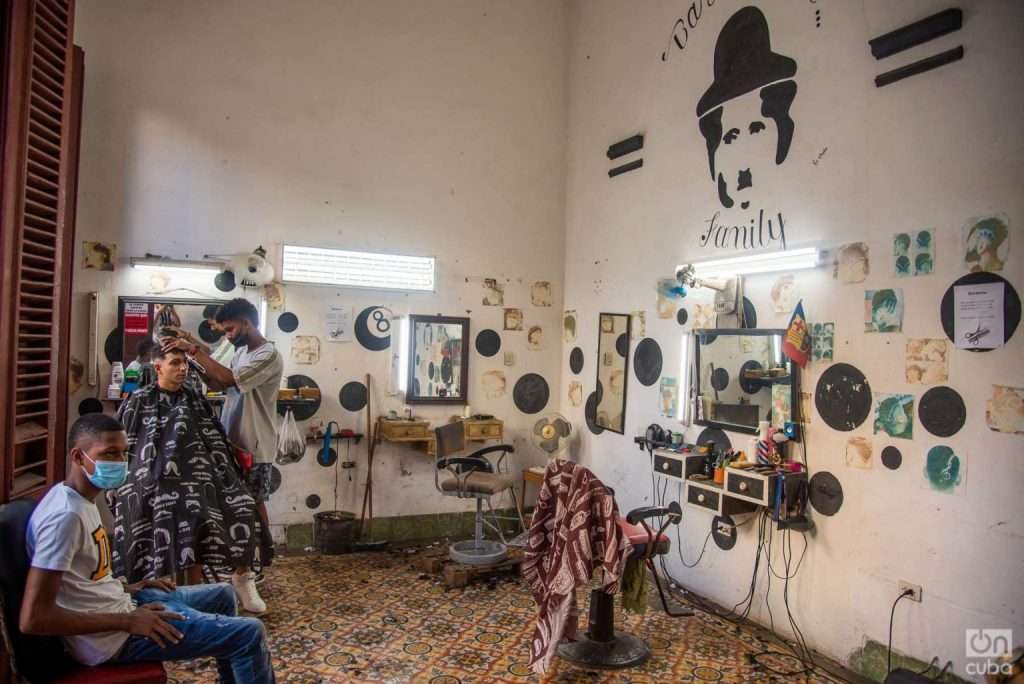Since, in mid-August 2021, the Cuban authorities approved the regulations in favor of the emergence of micro, small and medium-sized enterprises (MSMEs), a path of diversification of economic actors began, in an economy that continues to be mostly state and centralized.
So far, 5,643 private MSMEs, 68 state MSMEs, and 59 non-agricultural cooperatives have been approved. Fifty-two percent of the new entities are conversions of pre-existing businesses and 48% correspond to new ventures.
One year after the decree-law that opened the Cuban economy to SMEs was approved, what is your assessment of its impact?
In the mid-1990s, the Commission for Productive Affairs of the National Assembly of People’s Power requested the Center for the Study of the Cuban Economy to initiate a project on this subject. We did it, we even managed to hold an event with self-employed workers in Holguín. I think it was the first and the only one we could hold. Then the situation would change and what seemed to be close at the time, moved away for more than twenty years. That postponement had and still has its costs.
But in the end, SMEs we have. A year is still a short time for such a complex economic and social phenomenon. They are just beginning, but there is a group of facts that, from my perspective, deserve to be highlighted.
SMEs have demonstrated the people’s enormous desire to do, their ability to invent and reinvent themselves, and Cubans’ unquestionable entrepreneurial spirit, which for decades was contained/constrained by regulations and prejudices. The breadth of the corporate purpose is one of the tools that allows them to reinvent themselves and adapt to changing market conditions.
The new SMEs have also demonstrated the “ability to learn by doing” of entrepreneurs and have allowed the creation of new spaces and offers of goods and services. In this sense, they have contributed to alleviating this long situation of an economy that suffers from a high supply restriction.
Their ability to create jobs and thereby provide legal income to more than 100,000 people who are currently employed directly in them, is another of the effects or impacts.
It is more difficult to determine those indirectly employed, but they also exist. So today, several tens of thousands of Cuban families have accessed improvements in their income thanks to SMEs. That social impact should not be left out of any assessment that is made.
Nor should the fact be left out that none of these jobs have cost the Cuban state a penny. How much does it cost the State to create a job, for example, in a hotel? Let’s divide the total value of the investment between the future number of hotel workers and we can have an approximation.
Prejudices and extemporaneous regulations persist, and the lack of experience to manage this new economic actor also weighs heavily.
Our SMEs have been born at the worst of times, within a “perfect storm” that has combined a continued crisis in the national economy, external restrictions from the U.S. government and an international crisis that has affected the behavior of international markets and generated global inflation.
After all the process that took years, it can finally be said today that SMEs are better protected, both academically and institutionally; they enjoy more space and, above all, having an SME has not only become a possibility, but also a citizen’s right.

There are those who maintain that the days of SMEs are numbered and that when the situation of the Cuban economy improves, they will face more and more restrictions and regulations.
There are precedents in this long process of reforms, of marches and countermarches. So there are grounds for that kind of reasoning. Unfortunately, the countermarches generated uncertainty and conveyed a feeling of legal insecurity, so unfavorable for the business environment.
But there are reasons to think that this time history does not have to repeat itself, neither as tragedy nor as comedy. I point out below some of them that make a difference between today and yesterday.
Today private ownership is recognized in the Constitution of the Republic, it is not a decree, it is not an idea said in a speech; it is an institution protected by the rule of all rules. It is also true that the law regulates what concerns it and therefore there is room for almost everything. It is also true that the regulations are made by human beings and they themselves can undo them.
After thirty years of reforms and more than sixty of socialist economy, the evidence indicates that it does not seem possible to move towards that prosperous socialism without developing a small and medium-sized business sector, fundamentally private, that occupies those spaces that are not strategic, although as a whole sector all of them are also strategic for the dynamics of the economy.
Another factor is the ability of SMEs to reinvent themselves all the time and the relatively little capital needed to start any business, compared to the slow and high cost of conversion of large enterprises, whether public or private.
Add the positive effect demonstrated on the territories in which SMEs have a significant dynamic.
On the other hand, SMEs contribute to local development and territorial development strategies where local governments have understood the advantages of having and promoting them.
In addition, in the ideo-political order the perception is different, at least in the letter of the documents. In the Conceptualization of the model, approved at the 8th Congress of the PCC, it says: “In the updated Economic and Social Model, the system of entities of a business nature is made up of all the forms of ownership stipulated by law: socialist ownership of the entire people, cooperatives, joint, private enterprises, as well as political, mass, social organizations and institutions and associative forms.”
But it is true that the taste of uncertainty still remains. Trust is the building that takes the longest to build, but the one that is most easily destroyed; to regain trust takes time and more.

Some dissatisfaction has been heard among entrepreneurs with the delay for the constitution and to be able to start operating.
I have to say that the digital platform for registration that the Ministry of Economy and Planning (MEP) put into operation is one of the most transparent processes that have been implemented in Cuba in relation to the economy.
If something similar could be done for the approval of foreign investment — at least for those that are not strategic — we would advance much more in that other purpose. But it is true that it can take a long time, even after the proposal has been approved by the MEP (I am not aware of any that have been rejected).
Greater coordination is still needed between the other organizations involved in the process. There is a lack of skills in some officials of these offices. There is work to do yet; each one must assume what concerns them.
Some have proposed that this process be passed on to local governments. However, I don’t think they are prepared for this: they lack a digital platform, officials with the required skills and, in addition, they are often overwhelmed with many other tasks.
Let’s look at the difference between the number of SMEs and the number of local development projects. The organization of the process in the case of the approval of SMEs has, at least in part, to do with it.
Can local governments get more out of SMEs?
SMEs are almost by definition local, they carry out their activities in a locality, pay taxes to that locality and generate employment in and for that locality. Much will depend on local governments to make the most of them, first by incorporating them into their development strategies and encouraging them to join, promoting and encouraging the emergence of new SMEs where needs appear that cannot be covered by the central government; fostering a relationship of cooperation and facilitation of processes; promoting the best experiences, generating projects and public tenders between local and non-local entrepreneurs.
It is true that one of the resources or instruments that local governments would have to generate incentives is the tax system; but unfortunately they do not have the possibility to do so since those taxes all go to the central level except the 1% for local development.
It is necessary to change that idea that SMEs are a problem for this other one in which they are part of the solution.
Like almost everything that has to do with human beings, it is not easy, but it is possible to achieve it.

And the state enterprise? Don’t SMEs compete with it?
It’s good that it is so. In reality, even today, with some rare exceptions, SMEs do not compete much with state-owned enterprises. In any case, if they do it, it is not because SMEs are already tremendously productive and efficient; in many cases it is due to the deficits that the state enterprise has had to drag between regulations and impositions.
We have traveled twenty thousand leagues towards the autonomy of the state enterprise and we have not yet reached it. And still today we want to blame the state entrepreneur for the poor performance of that economic actor.
SMEs are a great opportunity for state enterprises in the sense of being able to outsource activities of their own production processes in order to concentrate on their core activity.
For SMEs, for their part, state-owned enterprises are also a great opportunity, for multiple reasons that range from being able to have existing premises and equipment that the state-owned enterprise had in disuse, to taking advantage of the enterprise’s expertise in expanding their own businesses. They are mutual customers.
It will depend a lot on state entrepreneurs and those of SMEs to promote this cooperation. Today there are experiences to show. But that is not why they will stop competing. I have always maintained that competition is very necessary in countries like Cuba. Cooperating and competing at the same time seems strange; but it is useful, and it works.
Of course, this relationship will also depend on the attitude that the chain of command to which the state enterprise belongs has towards SMEs. Hopefully one day it will be understood that the ministries are not the Ministries of the State Enterprise, but those of all enterprises, state or not. The country belongs to everyone and making it move forward is everyone’s duty.

So you are optimistic?
Despite everything, this reform is going against the grain of ideological and political prejudices that persist. There are those who still identify them today as a necessary evil, for being the materialization of private ownership in the national economy.
Sometimes it seems paradoxical to me that these same people overwhelmingly vote for foreign investment, as if the foreign private entrepreneur were less private or more patriotic than the Cuban private entrepreneur.
But you know what, today this small Cuban entrepreneur, whose value has often been reduced, can compete with the foreign entrepreneur and can also collaborate.
Today they can do much of what they, the foreign entrepreneurs, do and that Cuban entrepreneurs could not do before. And they have known how to do it, they have learned by doing it. Nor has the State had to spend a penny on a training course.
Many issues remain to be resolved, some very specific, such as a tax system that does not favor them, including that extemporaneous 5% tax on the labor force, a figure that was created to induce state enterprises not to inflate their payrolls and that has been mechanically transferred to SMEs. It is inconsistent that a country that needs to create jobs punishes those who create it by making them pay 5% on their payroll.
Reorganizing tax brackets is also an undeniable necessity; in the same way that at some point — hopefully not too late — thought should be given to reducing that 35% tax on taxable income. It was also transferred to the SME from the state enterprise based on an erroneous interpretation of the phrase “similar conditions”; which, in itself, contains an enormous inequality, because it is treating in the same way what is totally different.
There are still no true microcredit institutions in the country and every day the need for them is demonstrated for these small businesses, and much remains to be done in terms of credit and insurance for them.
There are many other spaces that SMEs can occupy but they are included in the negative list. I am not talking about education or health, but about others associated with professional activities, from consultancies of various kinds to tourist agencies. Today those opportunities are being lost.
We are still waiting for the procedure so that Cuban SMEs can sign business deals with foreign investors. By the way, this is not a gift or a favor that is done to them: they are legal entities, it is their right, while Law 118 is clear and emphatic on the subject. Can anyone estimate how many investment intentions have been lost this year due to that delay? Will someone pay for it?
It is a process, it is not only economic, but also political and ideological. But if we want to advance in the sense of the nation’s vision — sovereign, independent, socialist, democratic, prosperous and sustainable —, let’s not think that it will be done only with state enterprises; today we know it is not possible. There are the facts and the data, and not only those of the last three years.
It is necessary to unite, it is necessary to add, it is necessary to look for the least common multiple. It is necessary to march with everyone, SMEs are part of that whole.










